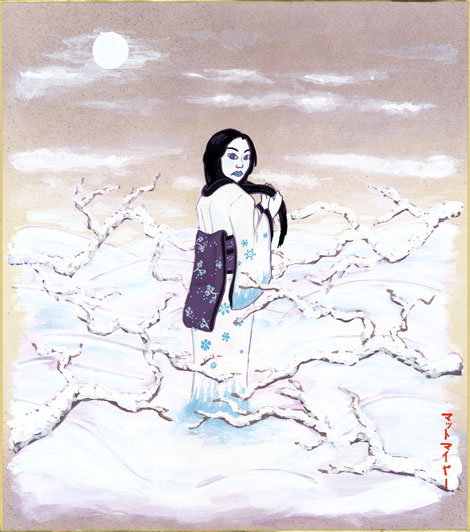Anyone who is zombie crazy like I am will love today’s yokai, Dorotabo.
Long ago, somewhere west of where Tokyo is today, a poor but hard-working farmer managed to till a piece of uncultivated land into a productive rice field, and eked out a good living for himself. But alas the man took sick and died, and his son, a lazy and dishonest person unlike his father, spent his days drinking and left the fertile land neglected. Eventually the property was sold to a new owner.
But the old man’s spirit could not rest, seeing his farm in ruins and his toil amounting to nothing, and one night his ghostly torso rose up out of the mud, crying for his field to be returned. From then on, every moonlit evening the dead farmer could be heard wailing in the distance, demanding the return of his property.
Zombie! Although there’s nothing mentioned about him eating brains, or even being able to climb out of the ground beyond his torso, this is one yokai I could really learn to like. Who knows, if Japanese zombies don’t actually climb fully out of the ground, this may be the safest place yet when the zombiepocalypse comes. Don’t kid yourself: it is coming. Take care, and don’t forgot to stock a flashlight, first aid kid, clean water, and a machete.

Dorotabo






